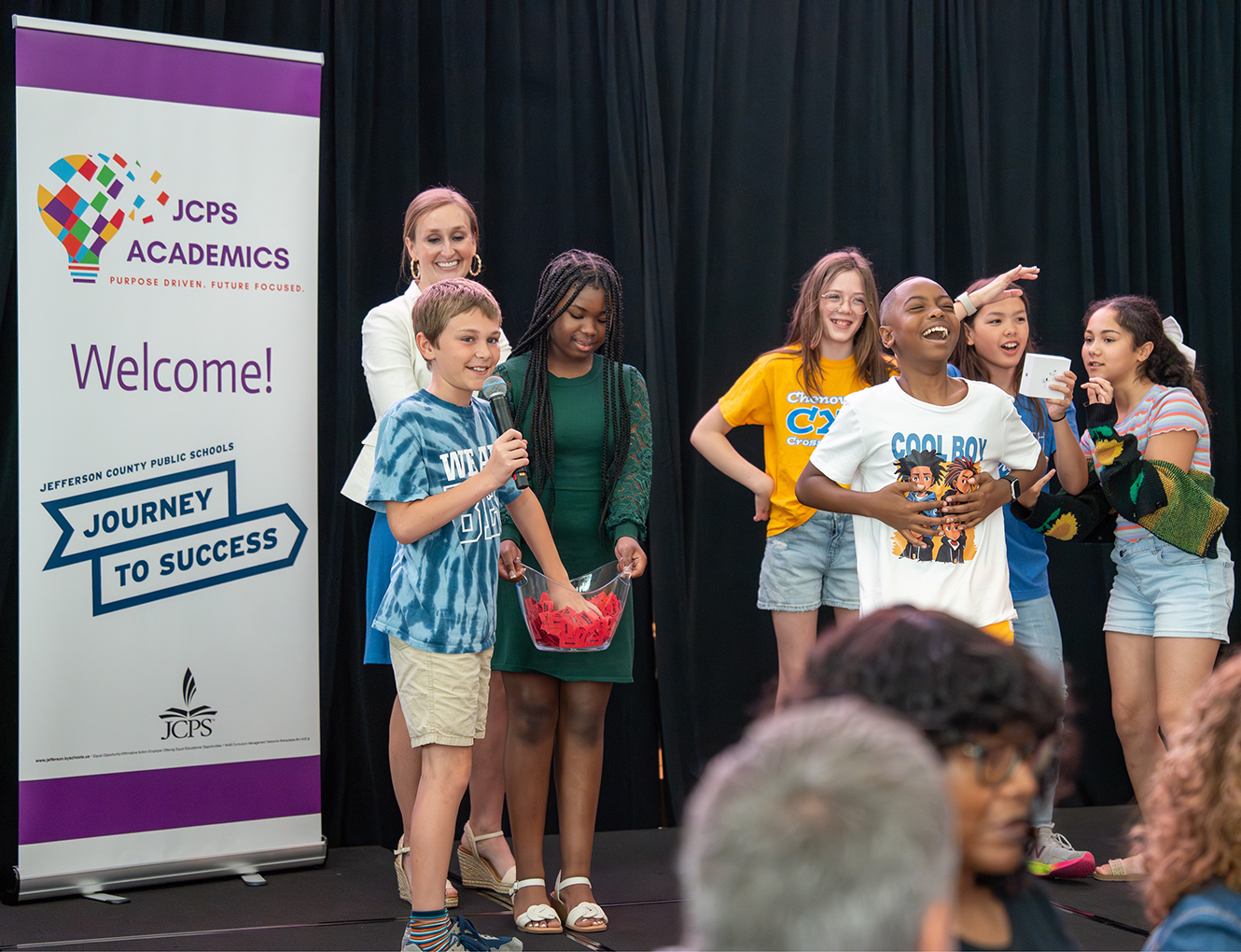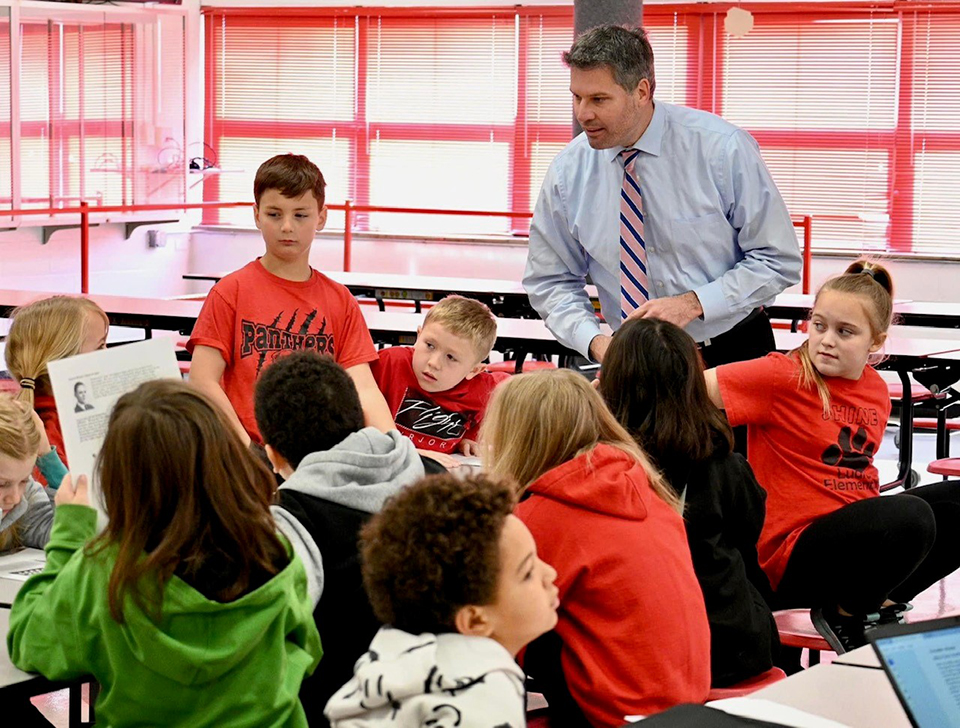
Robert Grubbs, a Marshall County native, won the 2005 Nobel Prize in chemistry. He said schools need to instill their students with a love of discovery to get more young people thinking seriously about careers in STEM fields.
By Jennifer Ginn
jennifer.ginn@education.ky.gov
There’s been a lot of talk in education circles for many years about how to better prepare students in the STEM – science, technology, engineering and mathematics – fields.
Kentucky native Robert Grubbs, winner of the 2005 Nobel Prize in chemistry, knows a thing or two about science and technology. He also has a few ideas on how to get more students involved in STEM fields.
Grubbs, who is a chemistry professor at the California Institute of Technology, was born in Marshall County and educated in Paducah. Some of his early memories involve going to school with his mother, who became a teacher.
“My grandfather was a strawberry farmer,” said Grubbs, who was born in 1942. “She (Grubbs’ mother) used to faint when she went into the field to work. She was sort of worthless, so she got sent to college. My earliest memories of education were when the babysitter couldn’t come and I’d go and sit in the back of her room.
“She started out teaching in a two-room school and then taught for 35 years in a rural school just outside of Paducah. I started early days going and sitting in the back of her classroom. I also had kindergarten, which was pretty unusual at that stage.”
Growing up in Paducah, he admits, may have helped stoke his interest in the sciences. The town was home to the now-closed Paducah Gaseous Diffusion plant, which provided enriched uranium for the federal government.
“There had been all of this work done there that had brought in a bunch of scientist into the Paducah area to work in what we called the atomic plant,” he said. “There was a teacher I had in junior high school, Ms. Barnreuther, she was a middle school-junior high science teacher. She had worked in the atomic plant.
“She was just a natural teacher who challenged us, who let us do creative things in class. She would say things that were wrong in class and see if we caught it and come back the next day to challenge her on it. She just pulled all of those kind of things, which were really, really important. I think that’s where it (science) got my attention.”
Grubbs said his mother always expected him to go to college. He started out at the University of Florida as an agriculture major.
“My cousin, who was sort of my older brother, lived next door and was in chemistry,” Grubbs said. “I thought, OK, I’ll do a little scientific side and do agricultural chemistry. Fortunately, after a year or so, I discovered that straight chemistry and organic chemistry was a lot more fun and switched over and did that.”
That switch was fortunate indeed. Grubb’s Nobel was awarded for his work in organic chemistry that lets chemists strip out specific atoms from a compound and replace them with atoms from another compound. These new compounds have been especially important in the development of new drugs, herbicides and polymers. And because Grubbs’ method creates much less hazardous waste than older methods, he often has been credited with helping to establish the field of “green chemistry.”
Getting more students interested in STEM careers, Grubbs said, goes back to the people who stimulated his interest – teachers.
“Part of the problem is that we’ve got to get teachers in schools that have a good background in science, which is somewhat difficult,” he said. “For the people who do get that, it’s a sacrifice because they could take those skills and go in industry and probably make more money than they will teaching. How one sort of manages that whole thing, I think, is really important.
“It was really important for me, these people who I met early on. There was the junior high teacher. My high school chemistry teacher kept things interesting. Then when I got to college, I met a young professor who was the one who really turned me on to organic chemistry. (He) convinced me that I could actually do this (chemistry) at the level that was required.”
Grubbs said teachers can reach out to local colleges and universities to seek hands-on experiences for their students. He said he tried in the past to bring high school students into his lab to have them help out in his research because “there’s still nothing like running a reaction and getting crystals falling out of the bottom.”
“It’s not one thing,” said Grubbs, “it’s a whole battery of things I think are good. We have graduate students who really enjoy the educational aspects of their field. They will go into local high schools and tutor and talk. There’s really ways to supplement these (high school science) programs, it just takes a lot of effort on someone’s part.”
Grubbs said education, in general, should open students’ eyes up to the joy of discovery.
“My view of education is that I think many places overdo on STEM and related sorts of things,” he said. “They put so much pressure on people so early to learn so many things it becomes a brutal exercise rather than a fun exercise of learning and exploring.”
Scientists, Grubb says, are products of both nature and nurture.
“It’s just got to be both. My usual advice when people ask me about choosing fields, especially in the high school level, is it’s not so much about deciding on one field,” he said. “It’s learning what you’re good at and then finding a field where you can take those skills and then develop the tools that are required to use those abilities.”



Leave A Comment